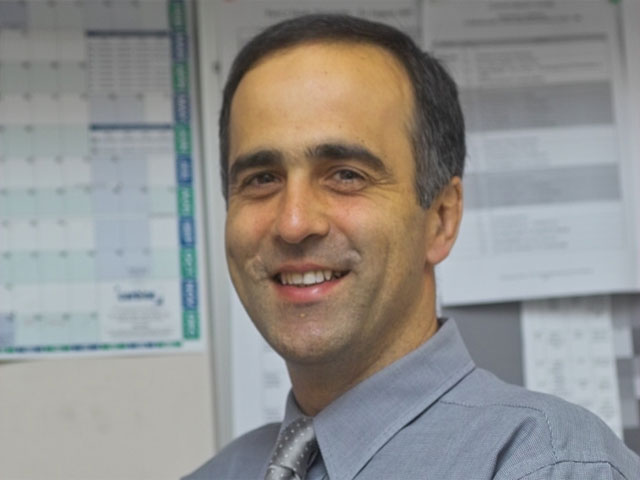Pancreatic Cancer Treatment

Cutting-Edge Trial Using Stereotactic Body Radiotherapy In Addition To Modern Chemotherapy To Kill Pancreatic Cancer
Pancreatic cancer could be treated using a new form of radiotherapy that delivers highly targeted doses of radiation to kill tumour cells with precision while minimising toxicity to surrounding cells. The MASTERPLAN clinical trial for high-risk and locally advanced pancreatic cancer patients has secured $1.5 million in funding from the Australian Department of Health as part of an investment in rare cancer research under the Medical Research Future Fund (MRFF).
Stereotactic body radiotherapy (SBRT) is a highly innovative treatment that utilises the most recent technological advancements in radiotherapy. The radiation dose to the tumour site is safely escalated to increase tumour cell death, while minimising the dose and toxicity to surrounding normal tissues. In the MASTERPLAN trial, patients will receive this therapy in addition to modern chemotherapy. Researchers believe that this treatment could be superior to current standard of chemotherapy alone in both the neoadjuvant and definitive setting.
Pancreatic cancer has the fifth highest incidence of cancer related mortality and accounts for the death of more than 2900 Australians annually. It also has one of the lowest survival rates of all cancers. Just 8% of patients survive for five years past their initial diagnosis. It is frequently not detected until it is at an advanced stage, by which point it often cannot be cured.
This therapy has the potential to impact more than a third of pancreatic cancer patients. If the results of the trial are successful, it could also be used to treat other forms of cancer.
"There is a desperate need for better treatments for this patient population," says Associate Professor Andrew Kneebone, the trial's Principal Investigator. "With the MASTERPLAN trial, we hope to determine whether stereotactic body radiotherapy with modern chemotherapy is superior to the current standard of care. This is an exciting new therapy that could provide better outcomes for these patients."
This phase II study will recruit 120 patients who have high-risk, locally advanced pancreatic cancer. The trial will be coordinated by the NHMRC Clinical Trials Centre.
The GI Cancer Institute is a not-for-profit working to save lives by funding research into all digestive cancers, including oesophagus, stomach, liver, gall bladder, bile duct, pancreas and bowel and colorectal cancer. Together these cancers are the most common forms of cancer, with 24,600 Australians diagnosed every year and claiming a devastating 33 lives a day.
All donations are tax deductible and money raised by GI Cancer Institute funds clinical trials, helping provide Australians with faster access to new treatments than if these clinical trials were run overseas. Community support is critical – 100% of all donations are directed specifically to research, including our Innovation Fund. This fund supports early stage research into much needed new treatments, ultimately raising the life expectancy and quality of life for people diagnosed with digestive cancers.
More information on pancreatic cancer can be found at https://gicancer.org.au/cancer/pancreatic-cancer/.
Image: Associate Professor Andrew Kneebone
MORE



